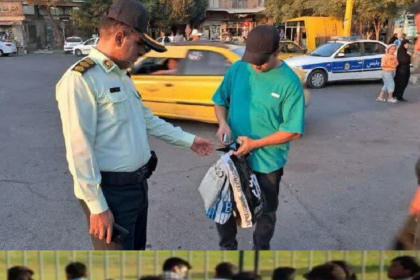RASC News Agency: In a move widely interpreted as a continuation of the Taliban’s campaign of institutional erasure and political retribution, the group’s Acting Minister of Agriculture, Ataullah Omari, announced that all land ownership documents issued under the former Afghanistani republic particularly those allegedly “fraudulent” are now considered legally void. The sweeping declaration has fueled concerns among legal experts and displaced families, who warn that the policy could facilitate widespread land grabs targeting political opponents and marginalized communities. Speaking at a training seminar organized by the Land Directorate of the Ministry of Agriculture in Kabul, Omari framed the decision as a necessary step in addressing longstanding civil disputes over land. However, observers note the regime’s lack of legal transparency, due process, or independent oversight raising red flags about the actual motivations behind the announcement.
“For years, property disputes have plagued Afghanistan. Now is the time to resolve these challenges through legal, scientific, and Sharia-compliant methods,” Omari told ministry employees. But such pronouncements ring hollow for those who have witnessed the Taliban’s systematic dismantling of state institutions and the weaponization of religion to justify extrajudicial actions. Omari went further, issuing a stern moral ultimatum to government staff: “You either walk the path of honest service, securing dignity in this life and the next or you descend into corruption, forgery, and betrayal, leading only to disgrace.” The Taliban’s frequent use of religiously charged rhetoric to frame administrative decisions continues to blur the line between governance and ideological indoctrination.
He further directed all relevant government bodies to recognize only those land ownership documents that, in the Taliban’s view, possess “legal and structural legitimacy.” Documents issued during the previous government are, by default, considered invalid unless re-approved under the group’s opaque legal framework. This vague and highly subjective definition effectively empowers Taliban officials to nullify property rights at will. Although the Ministry of Agriculture has not released specific details about what constitutes a “fraudulent” document, independent reports suggest that many of these so-called invalid papers are being selectively targeted to justify the confiscation of lands once owned by former government officials, civil society actors, minority communities, and institutions associated with the former democratic order.
In multiple provinces, the Taliban has already seized private lands, demolished homes, and reallocated property to loyal clerics and military commanders actions that critics describe as ideological cleansing masked as bureaucratic reform. What is being presented as administrative rectification is, in reality, a thinly veiled campaign of political vengeance, further destabilizing an already fragile society. Legal analysts argue that by stripping legitimacy from land titles issued by the previous state, the Taliban is not only undermining the legal rights of thousands of Afghanistani citizens but also obliterating the foundations of private ownership and lawful governance. In the absence of an independent judiciary or avenues for legal appeal, affected families face an impossible choice: vacate their homes or face the Taliban’s unaccountable enforcement apparatus.
More broadly, the Taliban’s actions reflect an authoritarian impulse to erase the institutional memory of the former republic, replacing it with an arbitrary, unaccountable system that operates through coercion and ideological obedience. The rejection of legally issued documents without a transparent review process or judicial standard exemplifies the regime’s approach to governance: a rule not of law, but of fiat, force, and fear. As the Taliban continues to reengineer Afghanistan’s legal and administrative systems in its own image, rights defenders warn that land dispossession may become one of the defining features of Taliban rule turning thousands of families into internal refugees while consolidating the power of a regime increasingly disconnected from the principles of justice, equity, and law.






